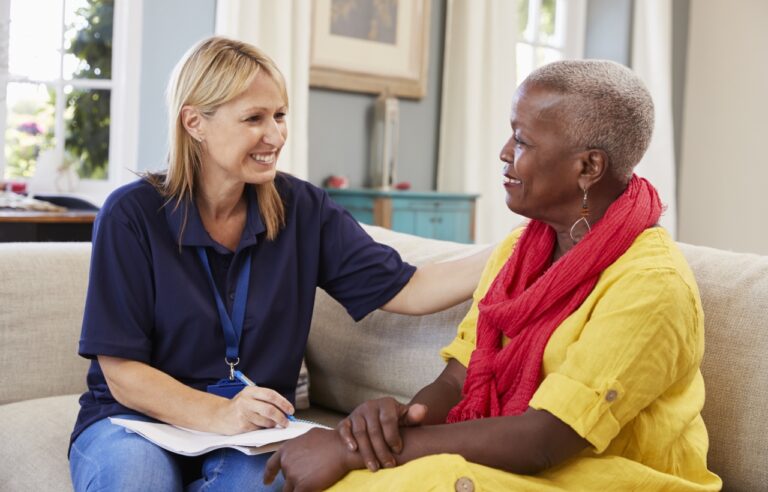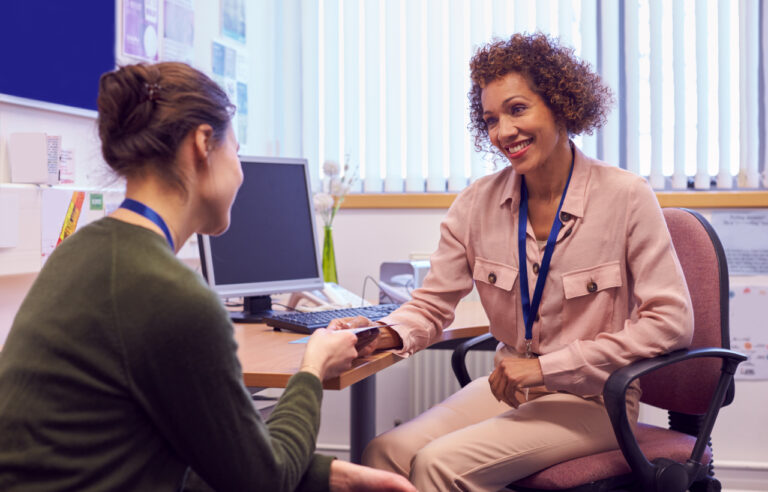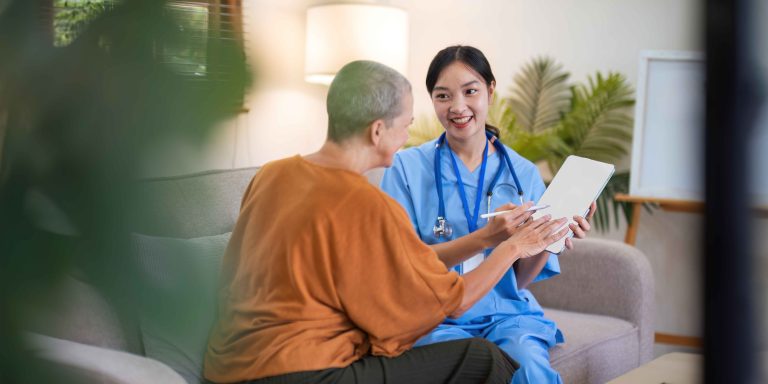Overview of Couples Therapy
Couples therapy is a valuable resource for partners seeking to enhance their relationship, whether they are facing challenges or simply aiming to maintain a healthy connection.
Importance of Couples Counseling
Couples counseling, often referred to as “relationship first aid,” can assist couples in dealing with a variety of concerns (Advanced Psychiatry Associates). It is not only for those in distress; even couples who are doing well can benefit from this type of therapy to keep their partnership strong.
The recent increase in the popularity of couples counseling is primarily due to the link between relationship stress and issues such as anxiety, depression, and addiction (Positive Psychology). In today’s cultural landscape, the dynamics of marriages and long-term relationships have evolved, making couples therapy more important than ever.
While therapy can address numerous relationship challenges, it is important to note that it may not reconcile fundamental differences in core values, goals, or personalities (Laurel Therapy Collective). However, it can significantly improve communication and understanding within the partnership.
Benefits of Seeking Couples Therapy
The advantages of couples therapy are broad and can benefit all types of relationships. From deepening the connection between partners to aiding severely distressed relationships, couples counseling offers numerous benefits:
- Clarifying Roles: Therapy can help partners clearly define their roles within the relationship, reducing confusion and promoting harmony.
- Addressing Intimacy Issues: Issues related to sex and intimacy can be openly discussed and addressed in a therapeutic setting, helping partners foster a healthier physical relationship.
- Enhancing Communication: Improved communication is often a primary goal, helping partners express their feelings and needs more effectively.
- Managing Life Transitions: Couples therapy can assist partners in navigating significant life changes or external stressors, providing stability during uncertain times.
According to Positive Psychology, couples counseling is a short-term intervention that can offer long-term benefits at any stage of the relationship. Whether dealing with minor misunderstandings or significant crises, partners can find valuable support through couples counseling.
For those interested in learning more about different types of therapy and their benefits, our articles on the importance of mental health counseling in today’s world and exploring different types of psychotherapy: which one fits your needs? offer further insights. Additionally, those curious about the practical aspects of therapy might find value in reading what to expect from marriage counseling sessions.
By understanding the importance and benefits of couples counseling, partners can take the first step towards improving their relationship and enhancing their overall well-being.
Couples Counseling Goals
In couples counseling, there are key objectives that we aim to achieve to enhance the relationship. These goals include improving communication, setting relationship boundaries, and addressing individual needs.
Improving Communication
Effective communication is crucial for any successful relationship. Often, miscommunications and misunderstandings lead to conflicts. In couples therapy, couples engage in exercises such as validation exercises where partners feel secure, open up, and be vulnerable (Talkspace). Positive language exercises can also play a pivotal role. By prioritizing how things are said, couples can ensure that their messages are well-received (Talkspace).
Table: Communication Exercises in Couples Therapy
| Exercise Type | Purpose | Example |
|---|---|---|
| Validation Exercises | Build security and trust | Listening without interrupting |
| Positive Language | Improve reception of messages | Using “I feel” statements instead of blaming |
For more information on the process and benefits of improving communication in relationships, you can check out what to expect from marriage counseling sessions.
Setting Relationship Boundaries
Boundaries are essential in any relationship. They help partners understand what is acceptable and what is not. In couples therapy, we explore the importance of setting boundaries to ensure both partners maintain mutual respect.
Therapists help couples define:
- Emotional Boundaries: Limits around sharing personal information or feelings.
- Physical Boundaries: Preferences related to physical space and touch.
- Time Boundaries: Decisions about time spent together versus personal time.
By establishing and respecting these boundaries, couples can prevent conflicts and ensure a healthy balance in their relationship. For further understanding, explore exploring different types of psychotherapy.
Addressing Individual Needs
Another crucial goal of couples counseling is addressing individual needs. Each partner’s personal well-being is integral to the health of the relationship. Therapists focus on:
- Understanding personal aspirations
- Managing individual stressors
- Balancing dependency and independence
During therapy, both partners are guided to reflect on their individual behaviors that contribute to relationship problems. This reflection helps in developing empathy and understanding (Psychology Today).
Table: Addressing Individual Needs in Therapy
| Need | Example Action |
|---|---|
| Personal Aspirations | Setting individual career goals |
| Managing Stressors | Practicing stress-relief techniques like mindfulness |
| Balancing Dependencies | Encouraging hobbies or interests outside of the relationship |
For more information on addressing individual needs in therapy, you can explore how to find the best therapist near you.
These goals are designed to relieve relationship distress and improve the overall functioning of the relationship. To learn more about the broader impact and the process of couples counseling, you can visit the importance of mental health counseling in today’s world and the process and benefits of couples counseling.
Process of Couples Therapy
In couples therapy, partners work together with a therapist to address and resolve relationship issues. The process generally involves several structured steps designed to encourage open communication and mutual understanding.
Initial Assessment and Evaluation
The first step in couples therapy is the initial assessment and evaluation. During this stage, the therapist conducts a thorough assessment to understand the dynamics of the relationship, including family background and individual behaviors contributing to relationship problems. This involves asking questions about the history of the relationship, individual experiences, and expectations.
Therapists aim to create a non-judgmental space where both partners feel heard and understood. This assessment helps identify core issues and sets the foundation for tailored therapeutic interventions. Therapists also assess each partner’s capacity for change and their willingness to engage in the therapy process.
Joint Therapy Sessions
Joint therapy sessions are the heart of couples therapy. In these sessions, both partners participate together under the guidance of a therapist. The therapist facilitates discussions, helping partners address and work through conflicts, misunderstandings, and emotional wounds.
According to Psychology Today, therapists in joint sessions do not take sides but help partners learn to have compassion for each other. They manage negative feelings and strengthen their bond by teaching effective communication techniques. This includes methods for resolving conflicts both during and after therapy.
| Session Aspect | Description |
|---|---|
| Participation | Both partners together |
| Focus | Conflict resolution, mutual understanding |
| Techniques | Effective communication, emotional regulation |
For more details on what to expect in marriage counseling sessions, visit our article on what to expect from marriage counseling sessions.
Individual Behavior Reflection
An essential component of couples therapy is individual behavior reflection. During these sessions, each partner is encouraged to reflect on their behaviors, reactions, and contributions to the relationship dynamic. This self-awareness helps individuals understand their triggers and their partner’s feelings.
In accordance with Social Work Today, developing a conscious relationship requires each person to recognize their role and reactivity levels during conflicts. Understanding one’s partner’s thoughts and feelings is crucial in creating constructive communication and resolving issues.
| Reflection Focus | Description |
|---|---|
| Self-awareness | Recognize personal triggers and reactions |
| Empathy | Understand partner’s thoughts and feelings |
| Communication | Mirror and validate partner’s experiences |
Individual behavior reflection sessions are pivotal in developing trust and setting boundaries, essential for effective communication between partners. This can be further explored in our article on the importance of mental health counseling in today’s world.
By following these structured steps, couples can work towards a healthier, more fulfilling relationship. Whether you are looking to improve communication, set boundaries, or address individual needs, the process of couples therapy at The Hope Wellness Center is designed to support every step of your journey. For more on various therapy techniques, consider our piece on exploring different types of psychotherapy.
Techniques in Couples Counseling
In our journey to achieving better communication and a healthier relationship, choosing the right counseling technique is crucial. There are several effective methods used in couples therapy, each with unique approaches and benefits. Here, we explore three prominent techniques: Emotion-Focused Therapy (EFT), The Gottman Method, and Imago Relationship Therapy (IRT).
Emotion-Focused Therapy (EFT)
Emotion-Focused Therapy (EFT) is a highly regarded technique designed to help couples identify and transform negative emotional patterns. Endorsed by the American Psychological Association (APA), EFT boasts a success rate of around 75% for couples who engage in this form of therapy (Talkspace). The approach focuses on fostering secure emotional bonds between partners by addressing underlying emotional issues.
Key aspects of EFT include:
- Identifying negative cycles of interaction
- Addressing underlying emotions
- Enhancing emotional responsiveness and bonding
According to the APA, EFT is highly effective, with close to 90% of couples experiencing significant improvement after undergoing EFT. For more information on different therapeutic methods, visit our article on exploring different types of psychotherapy: which one fits your needs?.
The Gottman Method
The Gottman Method is an evidence-based approach that integrates over 40 years of research to improve communication, enhance intimacy, and build stronger relationships (Positive Psychology). This method uses scientific principles to help couples create a deeper understanding of each other, aiming to enhance intimacy and friendship while effectively resolving conflicts (Talkspace).
Core elements of the Gottman Method include:
- Building love maps to understand each other’s worlds
- Nurturing fondness and admiration
- Turning towards each other instead of away
- Managing conflict through gentle conversation and compromise
Our counseling services offer various evidence-based techniques like the Gottman Method to help couples strengthen their relationship. To learn how to choose the right therapist for your needs, check out how to choose the right mental health therapist.
Imago Relationship Therapy (IRT)
Imago Relationship Therapy (IRT) helps couples explore how childhood experiences impact their adult relationships. This method emphasizes understanding and empathy by exploring childhood trauma and how it influences commitment issues or relationship anxiety (Talkspace).
Key components of IRT include:
- Identifying past influences on current relationship dynamics
- Encouraging empathetic understanding between partners
- Facilitating open and honest communication
IRT assists couples in pinpointing and addressing deep-seated emotional issues, fostering greater connection and healing. For more insights into the importance of therapy for healthy relationships, read the role of family therapy in healing relationships.
Summary Table
| Therapy Type | Focus | Success Rate | Key Features |
|---|---|---|---|
| Emotion-Focused Therapy | Emotional bonds and responsiveness | 75% – 90% (APA) | Identifying negative cycles, enhancing bonding |
| The Gottman Method | Communication and conflict resolution | High (Positive Psychology) | Building love maps, managing conflict |
| Imago Relationship Therapy | Childhood impact on adult relationships | Effective (Talkspace) | Exploring past influences, fostering empathy |
By understanding these techniques, couples can make informed decisions about which therapy method aligns best with their needs. Our center offers personalized approaches to couples counseling, ensuring that each couple receives tailored support. For more on the benefits of online counseling services, visit the benefits of online counseling services for mental health.
Cost and Duration of Couples Therapy
Average Duration of Sessions
Couples therapy typically involves multiple sessions to effectively address and resolve relationship issues. On average, the duration is around 12 sessions. These sessions aim to explore and resolve the root causes of conflicts, undo emotional damage, help partners understand themselves and their needs, and improve communication for a stronger relationship..
| Session Frequency | Typical Duration |
|---|---|
| Weekly | 3 months |
| Bi-weekly | 6 months |
For more guidance on what to expect during marriage counseling, refer to our article on what to expect from marriage counseling sessions.
Affordable Counseling Options
Seeking therapy doesn’t always have to be expensive. There are several strategies to find affordable couples counseling options:
- Couples Therapy Training Institutes: Sessions at training institutes are typically conducted by therapists-in-training and supervised by experienced professionals, making them a more affordable option.
- Community Agencies: Local community agencies often offer counseling services on a sliding fee scale based on income.
- Therapists with Sliding Fee Scales: Some therapists offer sliding fee scales options, making therapy more accessible for those with financial constraints.
For additional guidance on finding the right therapist and counseling services that suit your needs, check out our article on how to choose the right mental health therapist and understanding the different types of counseling services.
Exploring these options can help couples make therapy more affordable and accessible, ultimately fostering better communication and stronger relationships. For more tips and resources, visit our sections on the understanding cognitive behavioral therapy (cbt): is it right for you? and the advantages of telehealth therapy services.
Effectiveness and Success of Couples Therapy
High Success Rates in Couples Counseling
Couples counseling has proven to be a highly effective intervention for addressing relationship distress and enhancing intimacy. According to a survey, more than 97% of couples feel they achieve their desired outcomes through couples therapy methods (Talkspace). The American Psychological Association (APA) reports that Emotionally-Focused Therapy (EFT) is effective for about 75% of couples, with nearly 90% experiencing significant improvement post-therapy (Talkspace).
Impact on Relationship Distress
The positive impact of couples therapy on relationship distress is well-documented. Clinical trials reveal that couples therapy can significantly enhance communication skills, reduce conflicts, and foster a deeper emotional connection between partners. The Dyadic Adjustment Scale (DAS) supports that couples who undergo therapy continue to experience improved relationship satisfaction for at least two years after treatment.
| Metric | Percentage of Improvement |
|---|---|
| Couples feeling satisfied | 97% |
| Effectiveness of EFT | 75% |
| Significant improvement post-EFT | 90% |
Improvement in Mental Health
Couples counseling doesn’t only help the relationship; it also results in notable mental health benefits for individuals. Patients often report a decrease in anxiety and depression levels following therapy (Positive Psychology). By dealing with relationship issues in a structured, therapeutic environment, both partners can enjoy improved mental well-being and a more balanced emotional state.
Couples therapy at The Hope Wellness Center in Newport, RI, provides comprehensive support for adult psychiatric services, medication management, child and adolescent psychiatric treatment, mental health therapy, substance use treatment, and holistic services, ensuring that all these aspects are addressed effectively.
For more detailed information, you might explore what to expect from marriage counseling sessions or learn about the role of family therapy in healing relationships. If affordability is a concern, our guide on how to access affordable mental health services can offer useful insights.










